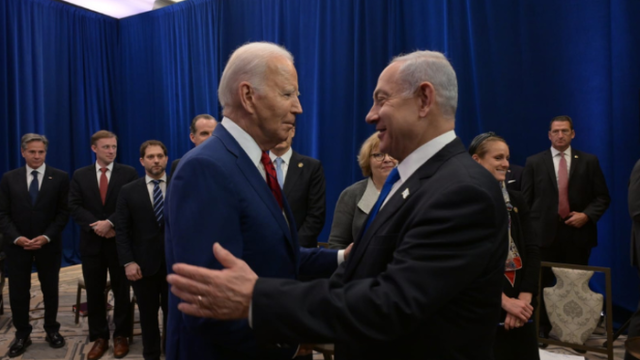Israel should diligently pursue the establishment of a defense contract with the United States, but with clear limitations confined to extreme existential threats in the Middle East. This recommendation stems from the Israeli Institute for National Security Studies (INSS). The institute underscores that evolving strategic circumstances and impending threats to the future of U.S.-Israel relations necessitate Israel's proactive pursuit of such a defense contract. The primary impetus behind this endeavor lies in the looming specter of a nuclear Iran and the potential for regional nuclear proliferation.
The policy document released by INSS not only advocates for this defense contract but also highlights its potential long-term benefits, particularly in cementing the "special relationship" that is integral to Israel's national security policy. It points out that Israel's policies on the Palestinian issue, combined with demographic and political shifts within the United States, are already exerting a cumulative negative influence on bilateral relations. Establishing a defense contract, however, could act as a stabilizing force, enhancing Israel's prospects of maintaining bipartisan support and the commitment of future U.S. administrations to its security.
In response to being called a friend by Israeli Prime Minister Benjamin Netanyahu, Joe Biden raises his eyebrows and does the sign of the cross.
— Chrissy 🍎 (@Germancococake) September 20, 2023
Is Biden based? 🤔 pic.twitter.com/h1AdgCdgCg
Crucially, the INSS emphasizes that Israel's involvement should be confined to conflicts within the Middle East. The rationale behind this limitation is clear: to safeguard Israel's freedom of action and prevent its entanglement in global conflicts initiated by the United States. The scope of the contract, as envisioned, must exclusively address existential and extreme threats within the Middle East region.
This report from the INSS amplifies concerns held by many experts in Israel regarding the deteriorating state of U.S.-Israel relations. It comes in the wake of Prime Minister Benjamin Netanyahu's directive for Israel's senior security and nuclear officials to collaborate with the United States in negotiations concerning Saudi Arabia's potential uranium enrichment capabilities—a move laden with strategic implications for the Middle East.
In its discussions with the United States, Saudia Arabia has made significant security-related demands of the United States beyond nuclear cooperation, including an official defense pact. How feasible is a US-Saudi defense pact, and what is its significance for Israel? >… pic.twitter.com/M879TtD8Pw
— INSS (@INSSIsrael) September 26, 2023
Furthermore, in May of this year, the International Atomic Energy Agency (IAEA) published a report highlighting Iran's persistent violations of the 2015 nuclear agreement and its substantial increase in enriched uranium stockpiles. According to the report, Iran's enriched uranium stockpile, as of May 13, exceeded the limits set by the 2015 agreement by a staggering 23 times. Notably, this includes uranium enriched to a level of up to 60%, sufficient for the production of two nuclear bombs—a development viewed with grave concern in Israel. Regrettably, there is a perceived lack of proactive measures from the Biden administration to counter this direct threat.


